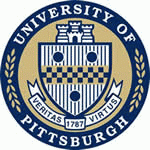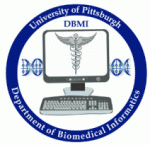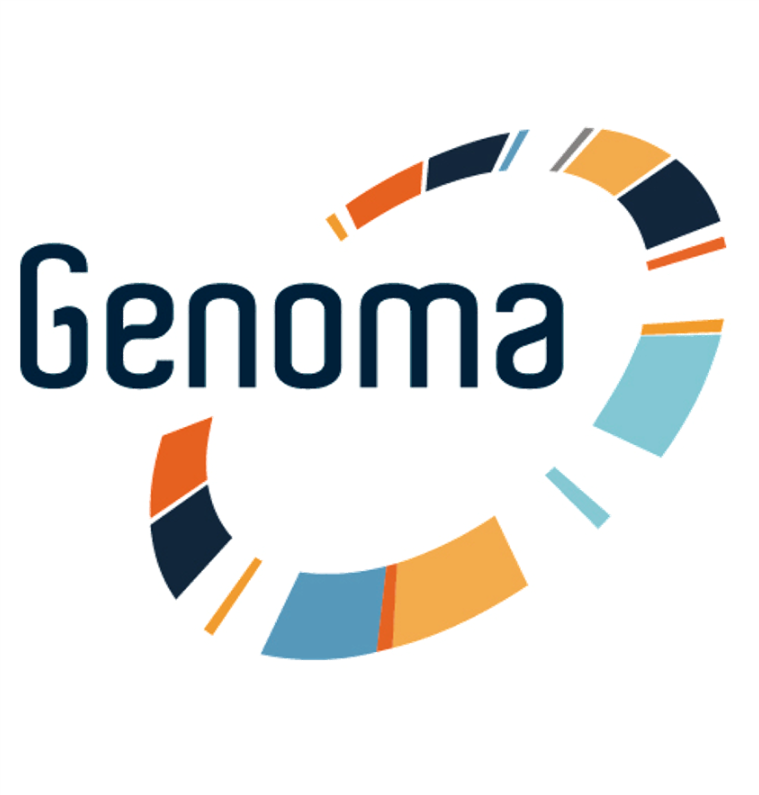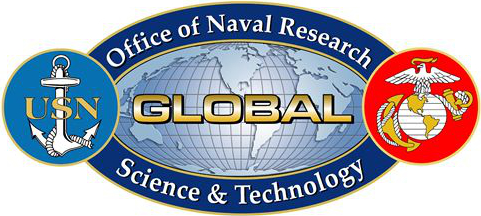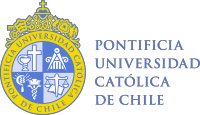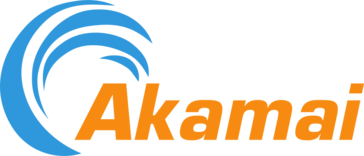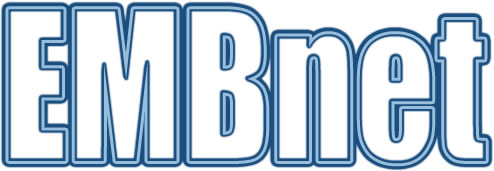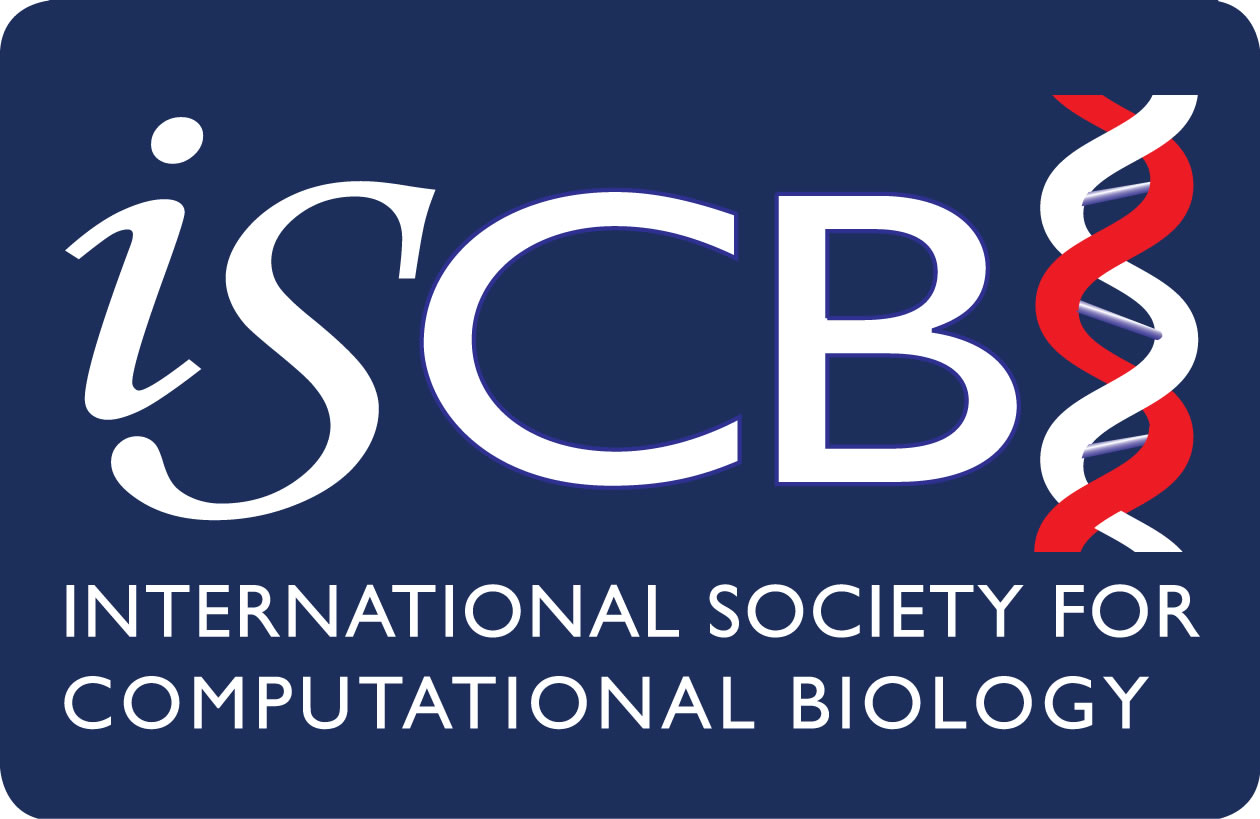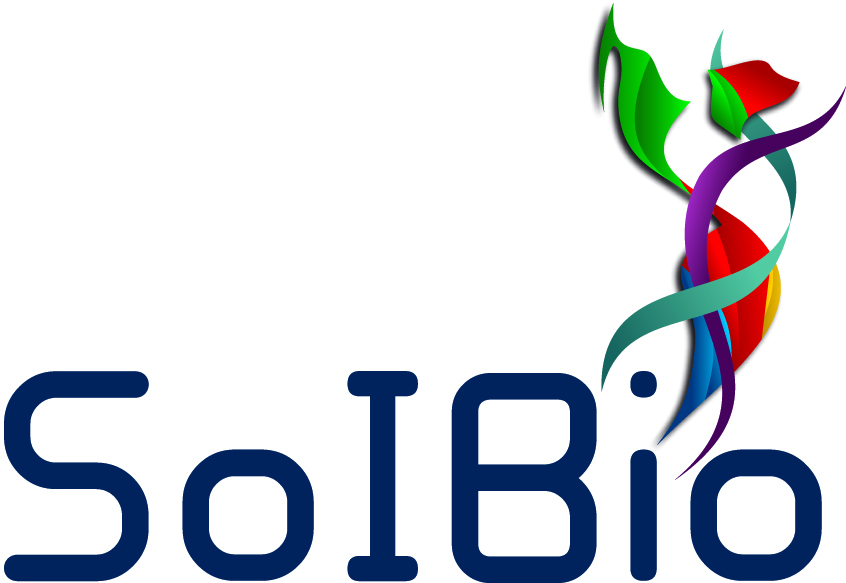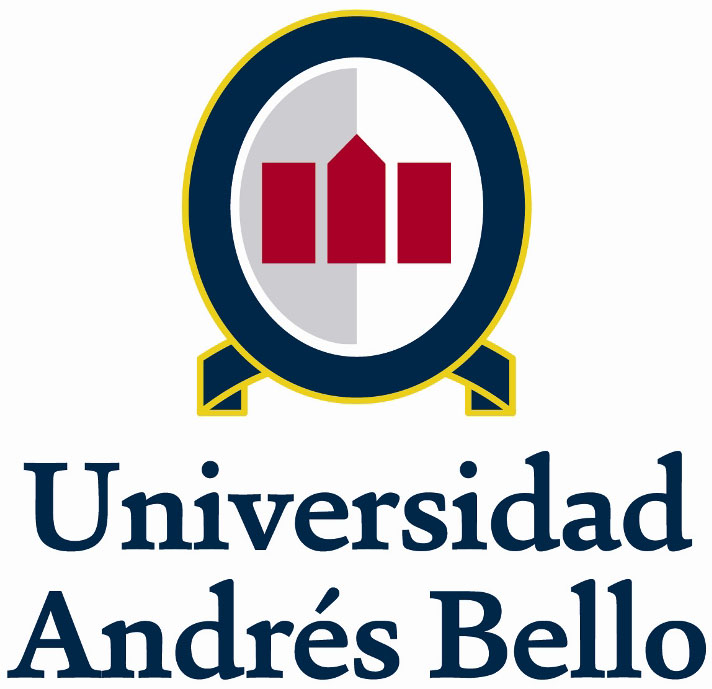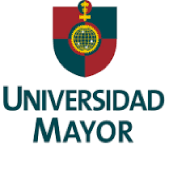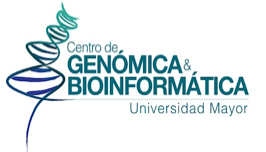PROGRAM SCHEDULE
links within this page: Monday, November 5 | Tuesday, November 6 | Wednesday, November 7
Thursday, November 8 | Friday, November 9
Check back regularly as schedule may be subject to change
Click here to download a pdf of the current schedule
Conference Schedule |
||||
| Monday – Day 1 – November 5, 2018 |
||||
| Go directly to: Tuesday, Nov 6 - Wednesday, Nov 7 - Thursday, Nov 8 - Friday, Nov 9 | ||||
| START TIME |
END TIME |
Pre-Conference Workshops, Tutorials, and Mini-courses Ticket required |
||
| 8:00 am | 5:00 pm | REGISTRATION | ||
| 9:00 am | 6:00 pm | Human genomic analysis for precision medicine with GATK4 Best Practices and FireCloud | ||
| 9:00 am | 6:00 pm |
Analyzing large datasets with Apache Spark |
||
| 9:00 am | 6:00 pm |
Designing, delivering and evaluating bioinformatics training |
||
| 9:00 am | 6:00 pm |
Introduction to python with application on genomic data |
||
| 1:00 pm | 2:00 pm |
Lunch, provided with registration, separate ticket for tutorials |
||
- top - |
||||
| Tuesday – Day 2 – November 6, 2018 | ||||
| Go directly to: Monday, Nov 5 - Wednesday, Nov 7 - Thursday, Nov 8 - Friday, Nov 9 | ||||
| START TIME |
END TIME |
Pre-Conference Workshops, Tutorials, and Mini-courses Ticket required |
||
| 8:00 am | 5:00 pm | REGISTRATION | ||
| 9:00 am | 6:00 pm | |||
| 9:00 am | 6:00 pm |
Human genomic analysis for precision medicine with GATK4 Best Practices and FireCloud |
||
| 9:00 am | 6:00 pm |
Analyzing large datasets with Apache Spark |
||
| 9:00 am | 6:00 pm | |||
| 1:00 pm | 2:00 pm |
Lunch, provided with registration, separate ticket for tutorials |
||
- top - |
||||
| Wednesday – Day 3 – November 7, 2018 | ||||
| Go directly to: Monday, Nov 5 - Tuesday, Nov 6 - Thursday, Nov 8 - Friday, Nov 9 | ||||
| START TIME |
END TIME |
Main Conference Programme | ||
| 8:00 am | 5:00 pm | REGISTRATION | ||
| 8:45 am | 9:00 am | Welcome | ||
| 9:00 am | 10:00 am | Keynote - David Holmes - Are We Alone in the Universe? |
||
| 10:00 am | 10:30 am | Presentation of organisations: ISCB-LA, SoIBio, EMBnet: Celebrating the 30° Anniversary (1988-2018) | ||
| 10:30 am | 11:00 am | Coffee Break | ||
| 11:00 am | 12:00 pm | Scientific Sessions I | ||
| 11:00 am | 11:15 am | Structural aspects of antibody recognition: a moments-based approach to shape and electrostatics - Lorenzo Di Rienzo - Sapienza University of Rome |
||
| 11:15 am | 11:30 am | Computational prediction of disease-causing variants from the molecular to the interactome scale - Marianne Rooman, Université Libre de Bruxelles |
||
| 11:30 am | 11:45 am | Pharmacophore-based virtual screening of Peroxizome (Pex)14 inhibitors to combat Trypanosomiasis - Christian Zevallos Delgado, Centro de Investigación en Ingeniería Molecular - Universidad Católica de Santa Maria |
||
| 11:45 am | 12:00 pm | New robust Bayesian methods detecting Allelic Specific Expression (ASE) and associating it with external phenotypes - Inti Pedroso,
|
||
| 12:00 pm | 12:15 pm | Ubiome Technology Talk | ||
| 12:15 pm | 12:30 pm | Genoma Mayor Technology Talk | ||
| 12:30 pm | 2:30 pm | Lunch on own, vendors available onsite |
||
| 12:30 pm | 2:30 pm | Poster Presentations, Group A - Odd Numbers | ||
| 2:30 pm | 4:00 pm | Scientific Sessions II |
||
| 2:30 pm | 3:00 pm | Genome-scale analysis of Wolbachia metabolism - Natalia Jimenez, CeBiB, CMM, University of Chile |
||
| 3:00 pm | 3:15 pm | The site-specific amino acid preferences of homologous proteins depend on sequence divergence - Evandro Ferrada, Universidad Mayor |
||
| 3:15 pm | 3:30 pm | Implications of the Recent Explosion In Police Use Of Genealogy Databases To Open Cold Cases By Identifying Suspects From DNA Voluntarily Contributed By Their Distant Relatives - Howard Cash, Gene Codes Forensics |
||
| 3:30 pm | 3:45 pm | Analysis of variations among Mycobacterium tuberculosis isolates with the MinHash algorithm - Leonardo Lucianna, Universidad de Buenos Aires. Maestría en Explotación de Datos y Descubrimiento de Conocimiento |
||
| 3:45 pm | 4:00 pm | Insights on protein thermal stability: a graph representation of molecular interactions - Eduardo Milanetti, Sapienza University of Rome | ||
| 4:00 pm | 4:30 pm | Coffee Break | ||
| 4:30 pm | 5:30 pm | Keynote - Ana Tereza Ribeiro de Vasconcelos - From Virus to Human Genome Through Bioinformatics |
||
| 5:30 pm | 7:00 pm | Welcome Reception | ||
- top - |
||||
| Thursday – Day 4 – November 8, 2018 | ||||
| Go directly to: Monday, Nov 5 - Tuesday, Nov 6 - Wednesday, Nov 7 - Friday, Nov 9 | ||||
| START TIME |
END TIME |
Main Conference Programme | ||
| 8:00 am | 5:00 pm | REGISTRATION | ||
| 8:45 am | 9:00 am | Welcome | ||
| 9:00 am | 10:00 am | Keynote - Nikos C Krypdides - Microbiome Research: from Products to Data |
||
| 10:00 am | 10:45 am | Coffee Break | ||
| 10:45 am | 12:30 pm | Scientific Sessions III |
||
| 10:45 am | 11:00 am | Distinct Microbes, Metabolites, and Ecologies Define the Microbiome in Deficient and Proficient Mismatch Repair Colorectal Cancers - Patricio Jeraldo, Mayo Clinic |
||
| 11:00 am | 11:15 am | Using large-scale shotgun proteomics and R Bioconductor packages to understand host-parasite interactions - Miguel De Jesús Cosenza Contreras, Federal University of Ouro Preto |
||
| 11:15 am | 11:30 am | Copaifera langsdorffi novel putative lncRNA conservational analysis in adaptive response to different ecosystems - Monica Danilevicz, Universidade Federal do Rio de Janeir |
||
| 11:30 am | 11:45 am | Systems immunology to predict regulation factors on skin cutaneous melanoma - Mindy Muñoz, USP |
||
| 11:45 am | 12:00 pm | Host-microbe interaction analysis of the Crohn’s disease metaproteome reveals potential differences in the microbiome-mediated autophagy modulation - Tahila Andrighetti, UNESP / Earlham Institute |
||
| 12:00 pm | 12:30 pm | Mathematical Modeling of the Relocation of the Divalent Metal Transporter DMT1 in the Intestinal Iron Absorption Process - Layimar Cegarra, University of Chile |
||
| 12:30 pm | 2:30 pm | Lunch on own, vendors will be available |
||
| 12:30 pm | 2:30 pm | Poster Presentation Group B - Even Numbers | ||
| 2:30 pm | 4:00 pm | Scientific Sessions IV | ||
| 2:30 pm | 3:00 pm | A Radiogenomic Approach for Decoding Molecular Mechanisms Underlying Tumor Progression in Prostate Cancer - Sarah Fischer, Rostock university medical Center |
||
| 3:00 pm | 3:15 pm | Modelling the regulatory network controlling dendritic cell differentiation from human monocytes - Karen J. Nuñez-Reza, International Laboratory for Human Genome Research |
||
| 3:15 pm | 3:30 pm | Generalizing experimental evidence through Hidden Markovian Models for a transcriptome de novo assembly selection criteria - Patricia Carvajal-Lopez, Centro de Investigaciones Biológicas del Noroeste, S.C. |
||
| 3:30 pm | 3:45 pm | The structure of a giant. Bioinformatics meets experimental techniques - Marta Bunster, Universidad de Concepción |
||
| 3:45 pm | 4:00 pm | The use of metagenomics for environmental monitoring of altitude savannas in the Amazon - Guilherme Oliveira, Instituto Tecnológico Vale |
||
| 4:00 pm | 4:30 pm | Coffee Break | ||
| 4:30 pm | 5:30 pm | Keynote - Wendy Gonzales |
||
| 7:30 pm | Conference Dinner (ticketed event) | |||
- top - |
||||
| Friday – Day 5 – November 9, 2018 | ||||
| Go directly to: Monday, Nov 5 - Tuesday, Nov 6 - Wednesday, Nov 7 - Thursday, Nov 8 | ||||
| START TIME |
END TIME |
Main Conference Programme | ||
| 8:00 am | 4:00 pm | REGISTRATION | ||
| 8:45 am | 9:00 am | Welcome | ||
| 9:00 am | 10:00 am | Keynote - Morten Sogaard |
||
| 10:00 am | 10:30 am | Coffee Break | ||
| 10:30 am | 12:30 pm | Scientific Sessions V |
||
| 10:30 am | 10:45 am | Tumor phenotype precedes metabolic reprograming in chemically induced hepatocellular carcinoma - Noé García-Chávez, LANGEBIO Advanced Genomic Unit, Centro de Investigación y de Estudios Avanzados del Instituto Politécnico Nacional |
||
| 10:45 am | 11:00 am | Knowledge networks reveal novel drug candidates and genetic mechanisms for Psychiatric Diseases - Thomaz Luscher Dias, Universidade Federal de Minas Gerais |
||
| 11:00am | 11:15 am | Defining non-coding genetic variants contributing to Autism Spectrum Disorder severity using Elastic-Net regression - Leandro Roser, Elson S. Floyd College of Medicine, Washington State University |
||
| 11:15 am | 11:30 am | Automatic Reconstruction of Rule-Based Gene Regulatory Network Models and its Calibration - Rodrigo Santibáñez, NetBioLab, Centro de Genómica y Bioinformática, Facultad de Ciencias, Universidad Mayor |
||
| 11:30 am | 11:45 am | Defining a Core Genome for the Herpesvirales and Exploring their Evolutionary Relationship with the Caudovirales - Juan Sebastián Andrade Martínez, Universidad de los Andes |
||
| 11:45 am | 12:00 pm | Active Site Flexibility as a Hallmark for Efficient PET Degradation by I. sakaiensis PETase - Pablo Galaz-Davison, Institute for Biological and Medical Engineering, Pontificia Universidad Catolica de Chile |
||
| 12:00 pm | 12:15 pm | Insights into the genome and variability of Phytophthora palmivora, the causal agent of the bud rot disease in oil palm - Juanita Gil, Cenipalma & Universidad de Los Andes | ||
| 12:15 pm | 12:50 pm | Special Session: Research Highlights from Universidad Andrés Bello |
||
| 12:15 pm | 12:20 pm | Conducting Research at Universidad Andrés Bello - Fernando Danilo Gonzalez Nilo |
||
| 12:20 pm | 12:35 pm | Deciphering the lifestyle of the plant pathogen Pseudomonas syringae under various nutrient-limiting conditions via genome-scale flux and proteomic analysis - Ignacio Poblete-Castr, Biosystems Engineering Lab, Center for Bioinformatics and Integrative Biology (CBIB), Universidad Andres Bello, Chile |
||
| 12:35 pm | 12:50 pm | Fighting antimicrobial resistance with computational and experimental biophysics - Daniel Aguayo V., Center for Bioinformatics and Integrative Biology, Universidad Andres Bello, Santiago, Chile |
||
| 12:50 pm | 2:30 pm | Lunch and Open Networking - Lunch on own; vendors available |
||
| 2:30 pm | 4:15pm | Scientific Sessions VI |
||
| 2:30 pm | 2:45 pm | The COST Action CHARME: a European initiative for the harmonisation of standards for life-science research - Domenica D'Elia, Institute for Biomedical Technologies -CNR |
||
| 2:45 pm | 3:15 pm | MassComp, a Lossless Compressor for Mass Spectrometry Data - Ruochen Yang, University of Southern California |
||
| 3:15 am | 3:30 pm | Stretch/Bio Break |
||
| 3:30 pm | 4:30 pm | Special Session on Bioinformatics Research and Education in Latin America |
||
| 4:35 pm | 5:35 pm | Keynote - Janet Thornton |
||
| 5:35 pm | 6:00 pm | Closing Ceremonies | ||
Check back regularly as schedule may be subject to change
TRAVEL FELLOWSHIPS
Links on this page: Cabana Travel Fellowships (Deadline Sept. 15) | US Army/US Army RDECOM Travel Fellowships (Deadline Sept. 21) | PLoS Travel Fellowships (Deadline Sept. 21)
Cabana Travel Fellowships
The GCRF-funded CABANA project is delighted to offer travel fellowships of up to US $1000 for researchers to attend the ISCB-LA-SoIBio-EMBNet Conference. The fellowships are open to scientists at any stage of their career. Early-stage researchers and researchers from minority groups are especially encouraged to apply.
Elegbility Criteria
Your place of work must be a Latin American country, excluding Chile (the host country).
You must register to attend at least one tutorial/workshop and the main conference. You must present a poster or a talk to remain eligible.
How to Apply
Before applying for a travel fellowship;
- Please register for the conference, including the tutorial(s) of your choice. Choose the invoice option and let us know if you cannot pay up front.
- Please submit your abstract (for oral or poster presentation) or a paper and make a note of the submission reference.
- When you’ve done that, apply here.
Deadline for applications is Midnight UTC on September 15th.

US Army/US Army RDECOM Travel Fellowships
The ISCB-LA EMBnet SoIBio Joint Conference is pleased to offer travel fellowships for students and postdoctoral fellows to present a talk or poster at the conference in Vina Del Mar, Chile. Funding sources for Travel Fellowships are very limited and we regret that we are not able to fund all applicants. The conference organizers are committed to providing support to as many eligible applicants as possible. Travel Fellowship consideration is based on need and accepted work to the ISCB-LA EMBnet SoIBio Joint Conference.
APPLY HERE
Application Overview
- Applicant must be listed as an author and be the presenter of an accepted Oral or Poster presentation (including Late Posters)
- Applicant must submit their talk title and EasyChair submission number when completing the application
- All applicants must attend all three (3) conference days and secure additional funding from other sources in order to be able to cover the full costs of attending the conference
- The deadline to submit a fellowship application is September 21, 2018, by 5:00 Eastern Time. No
exceptions will be made.
ISCB-LA EMBnet SoIBio Joint Conference generously thanks

PLoS Travel Fellowships
PLOS is pleased to offer a travel fellowships for a student and postdoctoral fellow to present a talk or poster at the conference in Vina Del Mar, Chile. The fellowship will be in the amount of $750 USD and a complimentary registration. Travel Fellowship consideration is based on need and accepted work to the ISCB-LA EMBnet SoIBio Joint Conference.
APPLY HERE

PRE-CONFERENCE WORKSHOPS, TUTORIALS, AND MINI-COURSES
Monday, November 5 - Tuesday, November 6, 2018
Location: Universidad Andres Bello - Vina Del Mar
Identifying potentially deleterious genetic variants in families with rare Mendelian diseases: from whole-exome sequencing to variant annotation and selection
Goals and Objectives:
Millions of families worldwide are affected by rare Mendelian disorders, inherited disease traits that are controlled by a single, extremely rare genetic variant. Applying next-generation sequencing to a select group of individuals in an affected family, it is possible to identify and extract potentially disease-causing variants from the background of natural human variation for further laboratory validation. The goal of this tutorial session will be to provide participants with a good understanding of the computer-based aspect of this line of research. Attendees will be provided with a step-by-step introduction to the sequencing and variant analysis of families with Mendelian diseases, from the quality control of raw sequencing data to the annotation and final selection of candidate variants for the disease. By the end of the session, participants will have the basic knowledge to carry out their own sequencing analysis given the appropriate sequencing data and accompanying clinical diagnosis. The session will provide a timely bioinformatics primer in an area of genomic medicine that remains largely unexplored in Latin America, and yet is a crucial component of the future of medicine both at home and worldwide.
Intended Audience:
The session will be open to any postgraduate-level researcher (or above) in genetics and/or genomics with a basic understanding of next-generation sequencing analysis (or with a strong interest in these topics). Familiarity with the Linux command line is not required but desirable.
Description:
Millions of families worldwide are affected by rare Mendelian disorders, inherited disease traits that are controlled by a single, extremely rare genetic variant. Thanks to important breakthroughs in the field of genomics over the past two decades, most notably the advent of next-generation sequencing, it is now possible to sequence several members of an affected family with the goal of identifying these disease-causing variants and thus providing much needed genetic counselling. In this session, we will provide the basic training necessary to carry out the computer-based aspect of this exciting and necessary area of genomic medicine, guiding current and aspiring bioinformaticians through the required steps of a typical analysis. Participants will be introduced to the tools, formats and thinking that accompany each of the critical steps of an analysis, namely quality control, sequence alignment, variant calling, and variant annotation and selection. Attendees will get the opportunity to simulate their own analysis, from the raw sequencing data up to the selection of candidate variants for the disease.
Analysing large datasets with Apache Spark
Trainer:
Apurva Nandan (CSC, Finland)
Goals and Objectives:
The goal of the session is to learn about Spark - a popular big data framework, which is used to tackle the huge volumes of data across a number of domains. Spark allows several researchers and professionals to work with large amounts of data using several programming APIs and even SQL. We will learn how to write simple to intermediate applications in Spark to perform data analysis. We would also be looking at the methods for running a spark cluster on a cloud based infrastructure, along with ways to manage and fine tune your cluster. The course will also demonstrate usage of Spark's native Machine learning library to perform ML based tasks and also how to work with real-time data streams.
Intended Audience:
Researchers, Students, Professionals with programming skills, preferably in Python, as the exercises are in Python. Some knowledge of SQL is also recommended.
Description:
When working with any kind of data, we might have ran into several problems - Low memory/cpu problems while working with huge datasets, waiting for hours to complete a job/analysis or starting all over again if the job fails. With the rapid growth in data volume that is being used in data analysis tasks, it gets more and more challenging for the user to process it using standard methods. Enter Spark, a high-performance distributed computing framework, which allows us to tackle big-data problems by distributing the workload across a cluster of machines. The two day course addresses the technical architecture and use cases of Spark, setting it up for your work, best practices and programming aspects. The first day includes the overview, architectural concepts, programming with Spark's fundamental data structure (RDD) and Spark's Machine Learning library. The second day focuses on the analysis of data by running SQL queries in Spark, working with real-time data streams and how to setup and manage a spark cluster.
Designing, delivering and evaluating bioinformatics training
Goals and Objectives:
Data-driven biology needs both talented scientists and inspiring trainers, and owing to the complex, multidisciplinary nature of bioinformatics, those best placed to train others need to have an in-depth understanding of their topic. However, subject-matter expertise alone is not enough to deliver effective bioinformatics training. The goal of this highly interactive knowledge-exchange workshop is to bring to light all the other things that contribute to the design and delivery of effective bioinformatics training. We are motivated by the need to strengthen bioinformatics capacity in Latin America. By bringing together a cohort of scientists with a passion for excellence in learning, we hope to contribute to a network of effective and confident trainers in the region. We will draw on our experience as bioinformatics trainers, both in Europe and in Latin America, incorporating use cases from Latin America to ensure relevance to our target audience. The organisers are involved in several initiatives that will also provide further opportunities for workshop participants to reinforce their learning. These include the CABANA consortium, which will provide opportunities for participants to host bioinformatics workshops in their own institutes, Software Carpentry, which provides more advanced training for instructors, and the ISCB Education Committee’s task force on curriculum and competencies, which has developed a framework for capturing training needs and matching these to learning opportunities. The full programme is available here.
Click here to visit their website.
Open Data and Tools for Bioinformatics Research
Goals and Objectives:
The goal of this workshop is to encourage the open sharing of biological data by matching participants to the open data resources, tools and analysis techniques most suitable to their research, and by collaboratively building a catalogue of resources that helps to meet these needs. There is an underrepresentation of data of Latin American origin in the public data resources and this can make it challenging to perform some kinds of research.
We will showcase some projects that are actively filling this void and provide pointers to enable our participants to do the same for their research. Among the current world projects gathering large amount of sequence data are the UK 100,000 genomes project (whole genome sequencing of 100,000 individuals), the earth-microbe project (metagenome-oriented effort), and several other plant, fungi, and animal genome projects. There is a proposal to sequence every animal and plant species on earth in the next 10-years (the earth-biogenome project). We will focus on this workshop on local Latin-American efforts to generate molecular data at a large scale. All these records will give us a current picture of the molecular data being produced in the world and specifically in Latin American countries.
Description:
This workshop will focus on supporting researchers to make full use of tools available for the dissemination of molecular data of Latin American origin. The workshop will be highly interactive. Participants will learn about the importance of open data to research, find out about global initiatives involving Latin American scientists, and work together to make Latin American biodata more discoverable. An important part of the workshop will be a hackathon in which we catalogue open data initiatives, data resources and tools made in Latin America, using a purpose-built wiki module. By the end of the workshop t we hope to have nucleated a committed group of scientists with established procedures for the open publication of biomolecular data in Latin America. The full programme is available here.
Click here to visit their website.
Introduction to python with application on genomic data
Trainers:
Renato Augusto Corrêa dos Santos, MSc., Brazil
Diego Mauricio Riaño Pachón, Dr. rer. nat., Brazil
Sheila Tiemi Nagamatsu, B.Sc., Brazil
Goals and Objectives:
Introduction of programming skills with applications on biological data with Python.
Intended Audience:
We expect the audience to comprise mainly biology students with little background on computer science, and without prior experience with programming in Python language. We will introduce basic aspects of programming with Python (syntax), showing applications on analysis of biological data. We consider it to be introductory material. We expect around 20 participants.
Description:
The session/course will be prepared based on previous experiences of Python workshops organized by Renato Augusto Corrêa dos Santos and Diego M. Riaño Pachón, combined with a new dataset brought by Sheila Tiemi Nagamatsu to this session.
Human genomic analysis for precision medicine with GATK4 Best Practices and FireCloud
Goals and Objectives:
Rare disorders afflict millions of families worldwide. The extremely rare genetic variants that potentially underlie disease traits can be discovered by sequencing large cohorts of patients and analyzing the genomic data with sophisticated bioinformatic tools. In this workshop, a collaborative team from Universidad Andrés Bello (Chile) and the Data Sciences Platform at the Broad Institute of MIT and Harvard (United States) will introduce you to variant discovery step-by-step, from preliminary clinical steps and hypothesis generation to the fundamentals of genomic analysis with the Genome Analysis Toolkit (GATK). Developed at the Broad Institute, GATK is the most widely-used open-source software package for variant discovery on whole genome and exome data.
Through a mix of lectures and practical exercises, you will learn the key scientific concepts and approaches for (1) formulating a hypothesis that a disease affecting a patient is controlled by a single deleterious variant, and (2) the official GATK Best Practices pipelines for variant discovery published by the Broad Institute. This includes learning how to write GATK pipelines using the Workflow Description Language (WDL) that is used in the GATK Best Practices, and execute them using the Cromwell execution engine on any platform, including FireCloud -- the Broad's open-source cloud-based analysis platform. FireCloud integrates computational resources, methods repository and data management in a secure environment. We will then guide you through the reproduction of an exome-sequencing study involving a large cohort of Tetralogy of Fallot patients (soon to be published;
https://www.biorxiv.org/content/early/2018/04/13/300905) using FireCloud, simultaneously learning how to assemble a workspace containing workflows and data that recapitulates all stages of the approach, which could then be published as part of a manuscript to build a fully reproducible analysis. The session will close with a discussion of the next steps following variant discovery, from the variant validation process to in vitro and in vivo experiments to confirm the association between a candidate variant and the disease.
Intended Audience:
This session is primarily intended for researchers, analysts, and bioinformaticians who need to perform genomic analysis/variant discovery on high‐throughput sequencing data. Prior experience with GATK is not required, but basic familiarity with biological and genomics terminology is expected. Statistical concepts involved in variant calling will be discussed at a high level but not in detail. No algorithmic experience is required. Basic familiarity with the UNIX-style command‐line environment will be required. Prior scripting experience using e.g. bash or python is a plus but not required.
Overall the material in this session is considered Introductory to Intermediate and is designed to be taught to 30-40 participants maximum.
Description
FireCloud is the Broad Institute’s open platform for secure and scalable analysis on the cloud where users can run the Genome Analysis Toolkit (GATK) Best Practices workflows and various additional utilities. Join this interactive workshop to learn how to leverage FireCloud and GATK for the discovery of rare genetic variants that underlie disease traits. We will take you step-by-step, from formulating a hypothesis to variant discovery and analysis, while simultaneously building a reproducible workspace in FireCloud.
Preparing for the workshop:
To prepare your laptop for the hands-on exercises please follow the instructions here and register for a FireCloud account. Please tell us your FireCloud account name in this survey by November 4th so that we can continue to set up your account for the workshop. If you follow the instructions and have difficulty running Docker on Windows, we recommend that you borrow a Mac or Linux system. Please let us know if you are unable to resolve this issue by emailing This email address is being protected from spambots. You need JavaScript enabled to view it..
Presenters
Yossi Farjoun, Associate Director, Data Sciences Platform, Broad Institute, USA
Robert Majovski, Lead Educator, Data Sciences Platform, Broad Institute, USA
Tiffany Miller, Community Development Manager, Data Sciences Platform, Broad Institute, USA
Matthieu Joseph Miossec, Principal Investigator, Center for Bioinformatics and Integrative
Biology, Universidad Andrés Bello, Chile
Open data and tools for bioinformatics research
Goals and Objectives:
The goal of this workshop is to encourage the open sharing of biological data by matching participants to the open data resources, tools and analysis techniques most suitable to their research, and by collaboratively building a catalogue of resources that helps to meet these needs. There is an underrepresentation of data of Latin American origin in the public data resources and this can make it challenging to perform some kinds of research.
We will showcase some projects that are actively filling this void and provide pointers to enable our participants to do the same for their research. Among the current world projects gathering large amount of sequence data are the UK 100,000 genomes project (whole genome sequencing of 100,000 individuals), the earth-microbe project (metagenome-oriented effort), and several other plant, fungi, and animal genome projects. There is a proposal to sequence every animal and plant species on earth in the next 10-years (the earth-biogenome project). We will focus on this workshop on local Latin-American efforts to generate molecular data at a large scale. All these records will give us a current picture of the molecular data being produced in the world and specifically in Latin American countries.
We will work together to build an openly accessible catalogue of resources, highlighting those that are ‘made in Latin America’. A major event to accomplish this purpose will be a hackathon where participants will have the chance of collaboratively create a catalogue of data resources and tools, incorporating as many as possible that are of Latin American origin. As part of the Hackathon, participants will be encouraged to share a description of their country’s molecular data on a Wiki page designed for that purpose.
One of our proposals is the development of a Wiki standard module for Latin American scientists to disseminate their projects focused on the generation and publication of molecular data of species from the region biodiversity. We will develop a central Wiki page for Latin America and we will link country individual pages to the central page. Our proposal will focus on the challenges we face to increase molecular data publication in Latin America and how to deal with them. Opportunities to improve publication requirements in the region include the design of specific workshops on public data dissemination, development of training material for leaders and research assistants on public databases and data submission and discussion of strategies to improve the dialogue between science funding agencies and scientists on the benefits of open data publication.
Intended Audience:
This workshop is for bioinformatics researchers whose research depends on public data, and/or who are producing lots of data and need support on how to share their data appropriately.
Description:
This workshop will focus on supporting researchers to make full use of tools available for the dissemination of molecular data of Latin American origin. The workshop will be highly interactive. Participants will learn about the importance of open data to research, find out about global initiatives involving Latin American scientists, and work together to make Latin American biodata more discoverable. An important part of the workshop will be a hackathon in which we catalogue open data initiatives, data resources and tools made in Latin America, using a purpose-built wiki module. By the end of the workshop t we hope to have nucleated a committed group of scientists with established procedures for the open publication of biomolecular data in Latin America.
GENERAL INFORMATION
Links on this page: Conference Location | Registration | Hotel Accommodations | Getting to Vina Del Mar | Personal Consideration Room | Child Attendance Information | Childcare Services
Guests of Attendees | Alcohol and Smoking
ATTENTION POSTER AUTHORS
When preparing accepted posters please note that your poster should not exceed the following dimensions 0.95 m (wide) x 1.30 m (high) View a diagram of the poster board in pdf format here.
Conference Location
Universidad Andres Bello - Vina Del Mar
Quillota 980, Viña del Mar, Región de Valparaíso, Chile
Registration
Conference registration covers the entry to the conference, breaks, welcome reception, and poster receptions. Tickets to the conference dinner and pre-conference workshops are sold separately.
Arrival at the Airport
S.O.S.
If it happens that you run into serious trouble upon arrival (loss of documents, money, etc), call to the cell phone of the Chair of Conference (Francisco Melo) from a public phone at: 9732 1374 (at any time). In that situation you may need to beg for a coin to someone at the airport to make the call ... (or contact representatives from your airline). However, Chilean people are very charming thus that should not be a problem at all.
Where can I find a money exchange office at the airport?
The airport features several Exchange houses, located on the first and third level of the public Hall, in international departures. In Viña del Mar there are also several Exchange Houses. Also, banks offer this service at a slight higher rate. You will also find many automated cashiers (ATM) on the streets and at the hotels.- top -
Are there means of transportation for arrival or departure airport?
There are no direct buses from Santiago Airport (SCL) to Viña del Mar. However, there are services departing from the airport with arrival at the Pajaritos Metro station, from where buses depart every 10 minutes to Viña del Mar.The trip, including the transshipments, takes approximately 1 h 40 min.
To get to Pajaritos, you must take a bus from the airport to the station (a bus called "Centropuerto").
Once in that station, there are several bus companies with frequent departures to Viña del Mar, whose buses arrive at the Viña del Mar bus terminal.
- top -
Where can you print your poster?
- Pro Digital Press (www.prodigitales.cl) - Av Marina 1002 - Viña del Mar, TLF. 2269 36 21
Work delay time: 2 business days maximum
Price: $ 11,757 CLP - Albatros Printing Press http://www.
imprentaalbatros.cl/ - Arlegui 239, local 3-B FONOS 32 2692585/32 2685271
Price: $ 12,500 - Dimacofi (https://www.dimacofi.cl/) - 1 Poniente 123, Viña del Mar TLF. +56 2 25696614
Currency
The currency in Chile is the Chilean peso (CL). US$ 1 is about CL$ 690. EU$ 1 is about CL$ 780. These conversion rates may fluctuate in the range of 5-10%. All major credit cards are generally accepted (Visa and Mastercard are the most popular). Most of ATMs in Chile are compatible with Maestro and Cirrus (check the logo in the back of your debit or credit card). It may be more convenient to get money in an ATM machine than in currency exchange booths at the airport. There are many ATM machines inside the airport and a couple of machines just after exiting the controlled airport area (you must walk a few meters to the right, after exiting the customs).Time zone
Chile is part of GMT-3Emergency numbers
131 Ambulance, 132 Fireman, 133 Police, 134 Investigation Police (PDI) 227081043Hotel Accommodations
There are many hotels and hostels located near Universidad Andres Bello.
Click here for a list of hotels
Click here for a list of hostels
Getting to Vina Del Mar from Santiago International Airport
There are no direct buses from Santiago Airport (SCL) to Viña del Mar. However, there are services departing from the airport with arrival at the Pajaritos Metro station, from where buses depart every 10 minutes to Viña del Mar.
The trip, including the transshipments, takes approximately 1 h 40 min.
To get to Pajaritos, you must take a bus from the airport to the station (a bus called "Centropuerto").
Once in that station, there are several bus companies with frequent departures to Viña del Mar, whose buses arrive at the Viña del Mar bus terminal.
The simplest / cheapest route to go from Santiago Airport to Viña del Mar is:
- Take a bus from Santiago Airport to "Terminal Pajaritos" or "Terminal Alameda". You should take a TurBus:
We have services from 05:00 hrs until 00:00 hrs every 10 minutes and additionally night services are made from the Airport to the Alameda Terminal between 00:30 and 04:30 hrs. every 30 minutes.
Departure from the first level next to door number 5 of the SCL Airport.
More information is available by clicking here
Approximately: $ 1,900 CLP (2.8 dollars) - In "Terminal Pajaritos" or "Terminate Alameda", take a bus to Viña del Mar. These leave approximately every 30 minutes (even less) and there are many companies that do the service. The most reliable are:
TurBus
PullmanBus
CondorBus
Approximately: $ 6,000 CLP (9 dollars). - At the Viña del Mar bus terminal, you can take a taxi, Uber or Cabify to your destination.
Private Car Transfers are also available. We advise that you book in advance. Some of the most trusted companies and where you can pay by credit card are:
http://www.transfer-santiago.cl
http://www.transferviña.cl
The trip to Viña del Mar should not take more than 2 hours, depending on traffic on the road.
Personal Consideration Room
A private room is available during the conference for nursing mothers and others with sensitive personal needs. Staff at the registration desk will direct you to the room. Please note that this room is not staffed and contains tables, chairs, and a waste basket. A restroom is located nearby.
Child Attendance Information
ISCB, SoIBio, EMBnet conferences are professional events. Children of registered conference attendees are welcome to attend the conference with their parent or guardian, as long as younger children are under the supervision of a parent or guardian at all times. Parents or guardians may bring children to educational events provided the child does not disrupt the event.
Childcare Services
We are unfortunately unable to provide childcare services. Attendees are encouraged to contact their hotel concierge to arrange individual or group childcare. Please check with your hotel well in advance of your arrival date.
Please note that it is the responsibility of the parent(s) and guardians requesting child care services to screen caregivers and to make a determination as to the appropriateness of the caregiver. ISCB does not screen childcare services and assumes no responsibility or liability with respect to these services.
Guests of Attendees
ISCB allows guests (defined as a non-scientist family member or non-scientist friend) of registered attendees. If you are a registered delegate who would like a non-scientist family member or friend to see your invited talk or poster presentation, please visit the registration desk to obtain a guest badge. Attendees may opt to purchase a guest pass that includes access to all planned receptions and meal functions of the conference.
Please note: All guest badges must be requested onsite at the registration desk.
Alcohol and Smoking
Alcohol
Beer, wine, non-alcoholic beer, and soft drinks may be offered during the meeting. Alcoholic beverages will be distributed per the laws and regulations of the country where the event is being held and may only be allowed in specific areas.
Smoking and Use of Tobacco
ISCB conference are tobacco-free events. Smoking and use of tobacco is permitted only in designated areas outside of the venue. Tobacco products, including electronic cigarettes, are not permitted in the conference or at conference events.


